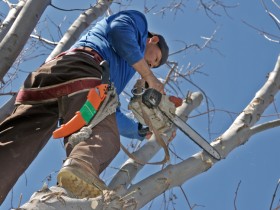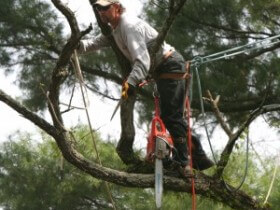When you use the correct organic gardening products, techniques, and equipment, it shows. It demonstrates that you are concerned about the environment as well as the health of your plants. That is a quality to be admired. Just like most things in life, there are continual ways to improve your skills. Below are some tips to help.
Healthy Soil
Starting a garden which is pest-free is easy, if you have healthy soil. Healthy plants are stronger and more able to resist both pests and disease. For healthy plants, start with healthy soil that is properly amended and free of chemicals in order to avoid salt accumulation.
Use both annuals and biennials to add a splash of color to your flower beds. By utilizing quick-growing biennials and annuals, not only will you be brightening up your flower bed, you can also alter its look each season and each year. Use these beautiful flowers to line your driveway, surround trees and shrubs, and for decorative hanging baskets. Some plants to get you started include petunia, marigold, sunflower, rudbekcia, and cosmos.
Check your soil before you begin planting your garden. Soil analysis costs a little money, but the report can inform you how to enrich your soil and open the door to a lush garden. A Cooperative Extension office can provide you with this service, saving you learning on your own by trial and error.
Plants need to take in CO2 to grow and thrive. More CO2 generally produces more luxurious plant growth. The best way to obtain a saturated level of carbon dioxide (CO2) is to use a greenhouse. To achieve optimal growing conditions, keep the levels of carbon dioxide high in your plants’ environment.
You can use boiling water to get rid of weeds naturally. Boiling water can be considered as an herbicide, and it is a safe one. Literally pour the water on the weeds, avoiding any wanted plants near them, and watch the weeds die over time. Boiling water damages the weed roots and will inhibit future growth.
Beneficial Bugs
When gardening, try not to use broad-spectrum pesticides. These pesticides can also kill useful insects that eat your pests. Beneficial bugs usually have more sensitivity towards pesticides than bad ones. Therefore, if the number of beneficial bugs drops, the problem with pests can get bigger. This can cause you to use an additional amount of pesticides in order to attempt to fix this problem.
Prevent damage from the sun by making sure you dress correctly whenever you go outside to garden. Try wearing a large sunhat and sunglasses to protect your face and eyes, and use sunscreen on any exposed skin. Using the right protection from the harmful rays of the sun means less of a chance of you getting sunburn and skin cancer.
You now have the skills, the tools, and the equipment necessary to apply these strategies to your own organic garden. Awesome! As with most things, organic horticulture requires that you never stop learning to improve your craft. Take the tips from above to boost your knowledge arsenal about organic horticulture. Hopefully, this article has provided you with a new technique that you can utilize in your organic garden.
A number of people would like to learn more about https://www.mdyhome.com/, but not everyone knows where they should look. This article has so much information, you’ll be ready to move forward with confidence. Use the information you’ve learned, and get busy.




